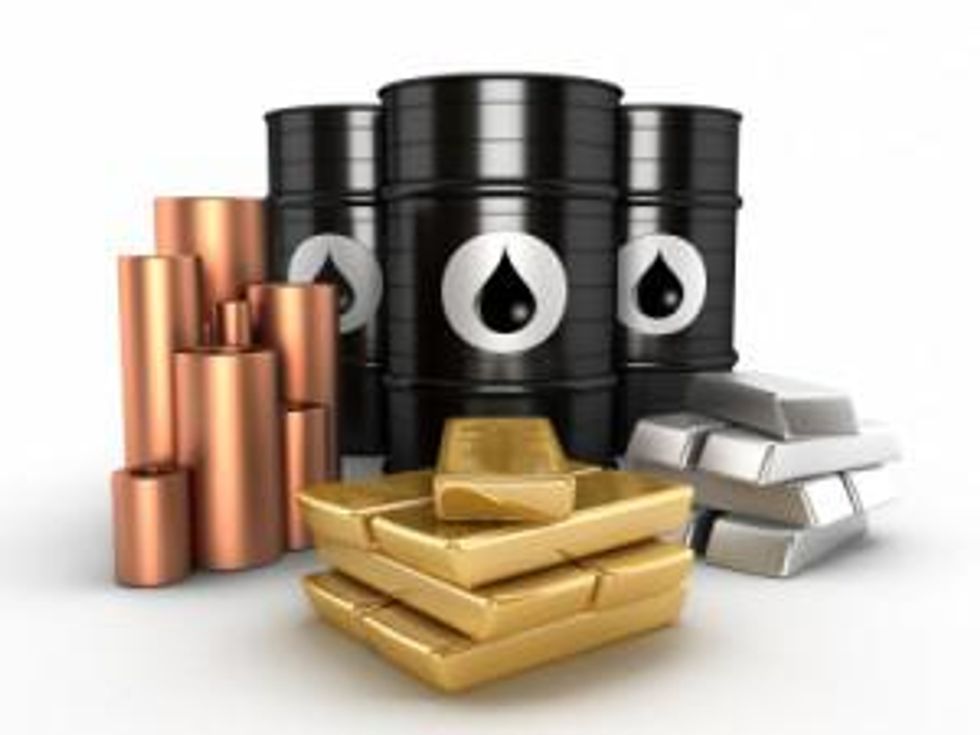With the US election in the past, investor attention has returned to Europe, which slid back into recession this week.
Crude oil and copper are ending the week flat, while gold declined on fresh concerns about the weak European economy. As well, investors remain uncertain about the US government’s approach to the looming fiscal cliff, an array of tax increases and spending cuts that will kick in on January 1 unless the president and Congress can reach a deal to avert them.
On Thursday, the 17-member Eurozone officially slipped back into recession for the first time since 2009. In the three months ended September 30, 2012, the region’s economy contracted at a rate of 0.1 percent. That follows a 0.2 percent reduction in the previous quarter. A recession is technically defined as two consecutive quarters of economic shrinkage.
Germany, which has largely supported the region’s economy since the crisis began, saw its growth slip to 0.2 percent in the quarter, down from 0.3 percent in the previous quarter.
In the US, newly re-elected President Barack Obama began laying out his position for upcoming discussions on the fiscal cliff. Obama favors an agreement that involves raising taxes on the wealthiest Americans, while Republicans see spending cuts as a big part of the solution.
The president outlined the ramifications of failing to reach a deal in stark terms, commenting, “[e]verybody’s taxes will automatically go up, including the 98 per cent of Americans who make less than $250,000 a year, and the 97 per cent of small businesses who earn less than $250,000 a year … Our economy can’t afford that right now.”
Republican House Speaker John Boehner, for his part, struck a positive tone, telling CNN, “I don’t think anyone on either side of the aisle underestimates the difficulty that faces us but I do think that the spirit of cooperation that you’ve seen over the last week, from myself and my team, from Democrats across the aisle, from the President, have created an atmosphere where I think that I’ll remain optimistic.”
In morning trade Friday, Brent crude is up 0.57 percent at $108.63 a barrel, while copper is down 0.66 percent at $3.44 a pound. Gold is down 0.15 percent at $1,711.30 an ounce.
Gold
Osisko Mining (TSX:OSK) is acquiring Queenston Mining (TSX:QMI,OTCQX:QNMNF) in a friendly takeover offer.
Under the agreement, Queenston investors will get 0.611 of an Osisko share for each share they hold, which Osisko said implies a value of $6 per Queenston share. That’s 14.8 percent higher than Queenston’s closing price the day before the deal was announced. After the purchase closes, Queenston shareholders will hold a roughly 12 percent stake in Osisko.
Osisko’s main property is its producing Canadian Malartic gold mine in Quebec. Queenston is focused on exploring and developing its properties in the Kirkland Lake gold camp in Ontario, where it aims to outline a resource of 8 million ounces of gold to feed a single milling facility. Regulators and Queenston shareholders must still approve the deal.
Sutter Gold Mining (TSXV:SGM,OTCQX:SGMNF) closed the first tranche of a non-brokered private placement of a total of 3,356,634 common shares at $0.30 each for total gross proceeds of $1,006,990. The company will use these funds to continue advancing its Lincoln gold project in California, as well as for general working capital purposes.
Oil and gas
Royal Dutch Shell (LSE:RDSA,NYSE:RDS.A) announced that it will invest $20 billion in new natural gas projects by 2015. Part of this spending will go toward its liquefied natural gas (LNG) operations. LNG is gas that has been converted to liquid for easier transport and storage.
Increased output of LNG will help the company serve rising energy demand in Asia by shipping gas from producing areas like North America. Shell expects its LNG output to rise 30 percent, to 29 million metric tons (MT) per year, once it finishes building its current projects in Australia. The company is also forecasting a 60 percent increase in natural gas demand from 2010 to 2030.
BP (LSE:BP,NYSE:BP) said it will plead guilty to 11 felony counts of misconduct related to the deaths of 11 crew members aboard its Deepwater Horizon oil rig, which exploded in April 2010. The disaster resulted in an oil spill that dumped 4.9 million barrels into the Gulf of Mexico over 87 days.
The company will also pay $4.5 billion in penalties relating to the disaster. The settlement includes the largest criminal fine in US history, at nearly $1.3 billion. In addition, a proposed settlement to a class-action lawsuit brought by individuals and businesses could cost the company around $7.8 billion.
Copper
Chilean major Antofagasta (LSE:ANTO) reported that its revenue rose 16.3 percent in the nine months ended September 30, 2012, to $4.85 billion from $4.17 billion a year earlier. Earnings before interest, taxes, depreciation and amortization rose 13 percent, to $2.8 billion.
The company’s copper production rose 13.7 percent, to 515,800 MT from 453,500 MT, largely due to the startup of its Esperanza mine in 2011. The higher production offset a decline in its average realized copper price, to 374.1 cents per pound from 378 cents a year ago. Antofagasta’s molybdenum and gold production also rose.
White Tiger Mining (TSXV:WTC) announced additional assay results from its Marshall Lake property in Ontario. The results come from five holes that were part of the company’s step-out drilling to test the continuity of mineralization in the RM Zone South.
A highlight was hole RMZ 11-28, which is the farthest hole the company has drilled to date along the geological trend to the northwest. This hole intercepted seven meters grading 2.5 percent copper, 8.9 g/t of silver and 0.067 g/t gold. The zone remains open to the northwest; based on this result, the company feels that mineral grades are improving in that direction.
Securities Disclosure: I, Chad Fraser, hold no positions in any of the companies mentioned in this article.
